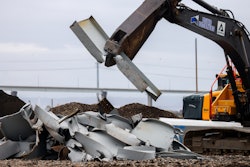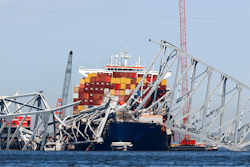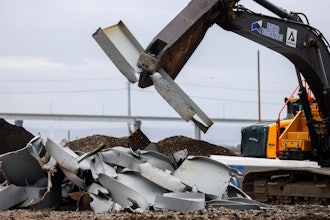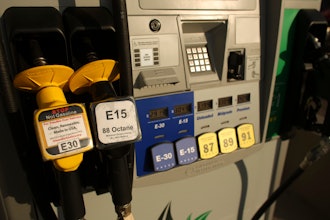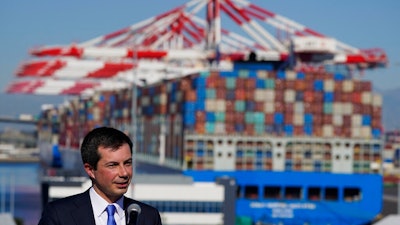
The Biden administration on Wednesday announced the release of $14 billion to the Army Corps of Engineers to fund 500 projects, with a focus on easing supply chain problems and addressing climate change.
The spending stems largely from President Joe Biden's $1 trillion infrastructure deal, and the administration is trying to show how the projects will improve supply chain backlogs.
There are three specific projects tied to reducing supply bottlenecks by making it easier to transport goods, according to a White House fact sheet. U.S. ports have struggled to manage the inflow of container ships and move containers onto trucks as the economy recovered from the pandemic, resulting in delays in sending goods to consumers and higher prices.
Among the projects being funded for the Army Corps of Engineers is $858 million to replace locks on the Ohio River so that water levels are high enough for large cargo ships. Locks are enclosures that help to raise and lower water levels and make it easier to navigate waterways on uneven terrain.
Wednesday's announcement includes $470 million for a new lock in Michigan that is key for shipping iron ore. There are also investments at the Port of Long Beach in California and Norfolk Harbor in Virginia to accommodate more shipping.
On the climate front, the Army Corps of Engineers will spend $1.1 billion to preserve the Everglades in Florida with projects to capture and store surface water runoff. There will also be $645 million to reduce coastal flood risks and $1.7 billion for inland flood risks.





